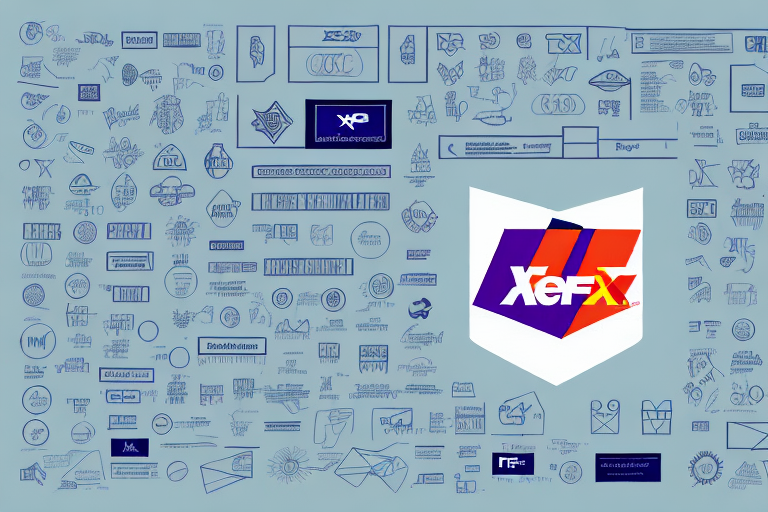Understanding Shipping Exceptions
Shipping is a critical component of businesses involved in the distribution of physical goods. Whether delivering to a single customer or managing high-volume shipments to multiple destinations, unforeseen challenges can arise, significantly impacting operational success. One such challenge is shipping exceptions.
What Are Shipping Exceptions?
Shipping exceptions refer to any incidents where a package or shipment deviates from the expected delivery schedule or encounters unexpected obstacles during transit. Common causes include:
- Weather Conditions: Severe weather can delay transportation and delivery.
- Incorrect Addresses: Mistakes in address details can result in misrouted or returned packages.
- Missing Documentation: Incomplete or incorrect paperwork can hold up shipments, especially internationally.
- Customs Clearance: Regulatory requirements can cause delays at international borders.
- Damaged Goods: Physical damage during transit may require insurance claims or refunds.
Types of Shipping Exceptions
- Delayed Deliveries: Packages arriving later than the promised delivery date.
- Lost Shipments: Parcels that fail to reach the intended destination.
- Damaged Packages: Items that are compromised during transit.
- Customs Holds: Shipments delayed due to customs inspections and regulations.
The Impact of Shipping Exceptions on Business Operations
Shipping exceptions can have profound effects on business operations, including:
- Customer Satisfaction: Delays or lost shipments can lead to dissatisfied customers and harm a company's reputation.
- Revenue Loss: Businesses may incur additional costs for replacements, refunds, or expedited shipping to rectify issues.
- Operational Disruptions: Managing exceptions requires resources and can divert attention from core business activities.
- Increased Stress: Handling shipping issues can create stress for both employees and customers.
According to a 2023 Shipping Report, approximately 22% of consumers cite delivery issues as a primary reason for dissatisfaction with e-commerce services.
Managing Shipping Exceptions
Effective management of shipping exceptions is crucial for maintaining smooth business operations and customer trust.
Carrier Procedures for Handling Exceptions
Shipping carriers have established protocols to address exceptions. Common procedures include:
- Address Verification: Updating and confirming delivery addresses to prevent misrouting.
- Documentation Requests: Securing missing or additional paperwork required for delivery.
- Insurance Claims: Initiating claims for damaged or lost goods on behalf of the sender.
- Local Hold Facilities: Storing packages at local facilities for recipient pickup if delivery fails.
The Role of Technology
Advancements in technology have enhanced the ability to manage shipping exceptions efficiently:
- Real-Time Tracking: GPS and scanning technologies allow businesses to monitor shipments continuously.
- Automated Alerts: Systems can notify companies instantly when an exception occurs, enabling prompt action.
- Predictive Analytics: Analyzing historical data to foresee potential issues and mitigate them proactively.
Platforms like ShipScience offer tools to optimize shipment tracking and exception management.
Preventing Shipping Exceptions
Proactive measures can significantly reduce the occurrence of shipping exceptions:
Accuracy in Shipment Details
- Double-check shipping addresses, including zip codes and contact information.
- Accurately declare package weight and dimensions to avoid delays or additional charges.
Optimizing Packaging
- Use appropriate packaging materials to protect goods without overpacking, which can increase shipping costs.
- Consider eco-friendly packaging options to reduce environmental impact and enhance brand image.
Quality Control Measures
- Implement thorough quality checks before dispatching shipments to minimize errors.
- Utilize package scanning and tracking systems to identify and address discrepancies early.
Effective Communication
- Maintain clear communication with carriers to ensure alignment and quick resolution of issues.
- Inform customers about shipping policies, potential delays, and provide real-time updates.
Handling Shipping Exceptions with Customers
Addressing exceptions effectively can preserve customer trust and loyalty.
Empathetic Communication
- Notify customers promptly when an exception occurs and provide clear information about the issue.
- Explain the steps being taken to resolve the problem and set realistic expectations.
Compensation and Policies
- Have a clear policy outlining how shipping exceptions are handled, including compensation procedures.
- Offer financial compensation or goodwill gestures if the exception results from company errors.
Consistent and fair treatment of customers during exceptions can enhance satisfaction and retention.
Legal and Financial Aspects of Shipping Exceptions
Failing to address shipping exceptions adequately can lead to significant legal and financial repercussions:
Legal Implications
- Liability: Businesses may be held liable for damages due to contract breaches, negligence, or lost revenue.
- Compliance: Adhering to shipping regulations is essential to avoid fines and legal actions.
Insurance and Refund Policies
- Understand and utilize insurance options provided by carriers to protect against losses.
- Familiarize yourself with carrier refund policies to handle claims efficiently.
Cost Management
- Track all costs associated with shipping exceptions, including shipping fees, insurance, replacements, and labor.
- Implement technology and carrier services to minimize these costs effectively.
Proper budgeting and cost tracking can help mitigate the financial impact of shipping exceptions on your business.
Dealing with Specific Shipping Exceptions
Addressing particular types of exceptions requires tailored strategies:
Customs Issues
- Ensure all international shipments comply with customs regulations by accurately declaring package contents.
- Work with experienced brokers or directly with customs to resolve any documentation issues promptly.
Damaged Goods
- Immediately document any damage with photographs and notify the carrier to initiate an insurance claim.
- Consider adding insurance coverage to shipments to cover the retail value of goods.
Proactive handling of specific issues like customs delays and damage claims can prevent minor problems from escalating.
Conclusion
Shipping exceptions present significant challenges for businesses dealing with physical goods. By understanding their causes and impacts, implementing effective management and prevention strategies, and maintaining clear communication with customers, companies can mitigate the adverse effects of these exceptions. Leveraging technology, adhering to best practices, and being prepared for legal and financial implications are essential steps in ensuring smooth and reliable shipping operations.






















